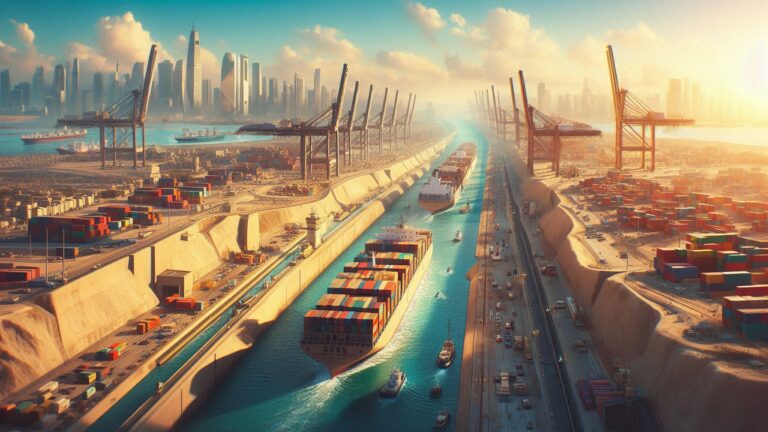A Marvel in the Sea
One of the most important maritime routes in the world is the Suez Canal, an artificial canal in Egypt. By linking the Mediterranean and Red Seas, it drastically cuts down on the time and distance of the maritime route between Europe and Asia. For generations, this vital river has served as a geopolitical and economic advantage.
A Synopsis of History
The concept of a canal connecting the Mediterranean and Red Seas has existed since antiquity. The Suez Canal project, however, wasn’t completed until the 19th century. Construction started in 1859 and was finished in 1869 under Ferdinand de Lesseps’ direction.
Economic Significance: Through transit fees, the canal brings in a sizable sum of money for Egypt. Because it makes it easier for commodities to move between continents, it is also essential to international trade.
Geopolitical Significance: Due to its advantageous location, the Suez Canal has become a hot spot for geopolitical conflicts. Its shutdown, even for a short time, could affect the global economy and cause supply chain disruptions.
Environmental Concerns: Pollution and habitat damage are two environmental concerns brought on by the canal’s increased maritime traffic.
The Never-Given Event
The huge container ship Ever Given grounded in the Suez Canal in March 2021, causing a major interruption to international trade.
Future Plans for the Suez Canal.
Egypt has improved the canal through extensive expansion work. It is anticipated that these extensions will increase the number of ships that transit through the canal each year and make space for larger ships.
As international trade expands, the Suez Canal will remain a vital conduit between continents. There is no denying this issue’s economic and geopolitical significance, and its effects on the world economy will last for a while.















